
KDI School Organizes Policy Seminar; Multifaceted Pandemic: Risks, Crises, and Opportunities for Sustainable Development
- Date 2022-08-29 10:02
- CategoryNews
- Hit1077
KDI School recently conducted a policy seminar for the summer semester on July 22, 2022. The theme of the seminar was "Multifaceted Pandemic: Risks, Crises, and Opportunities for Sustainable Development." The ongoing pandemic has fundamentally altered every aspect of how people live, work, and study. Public policy and governments are faced with a plethora of difficulties and opportunities as a result of this worldwide transformation. Members of the KDI School Family who have received training as policy analysts and proactive practitioners contributed their voices via posters and presentations.
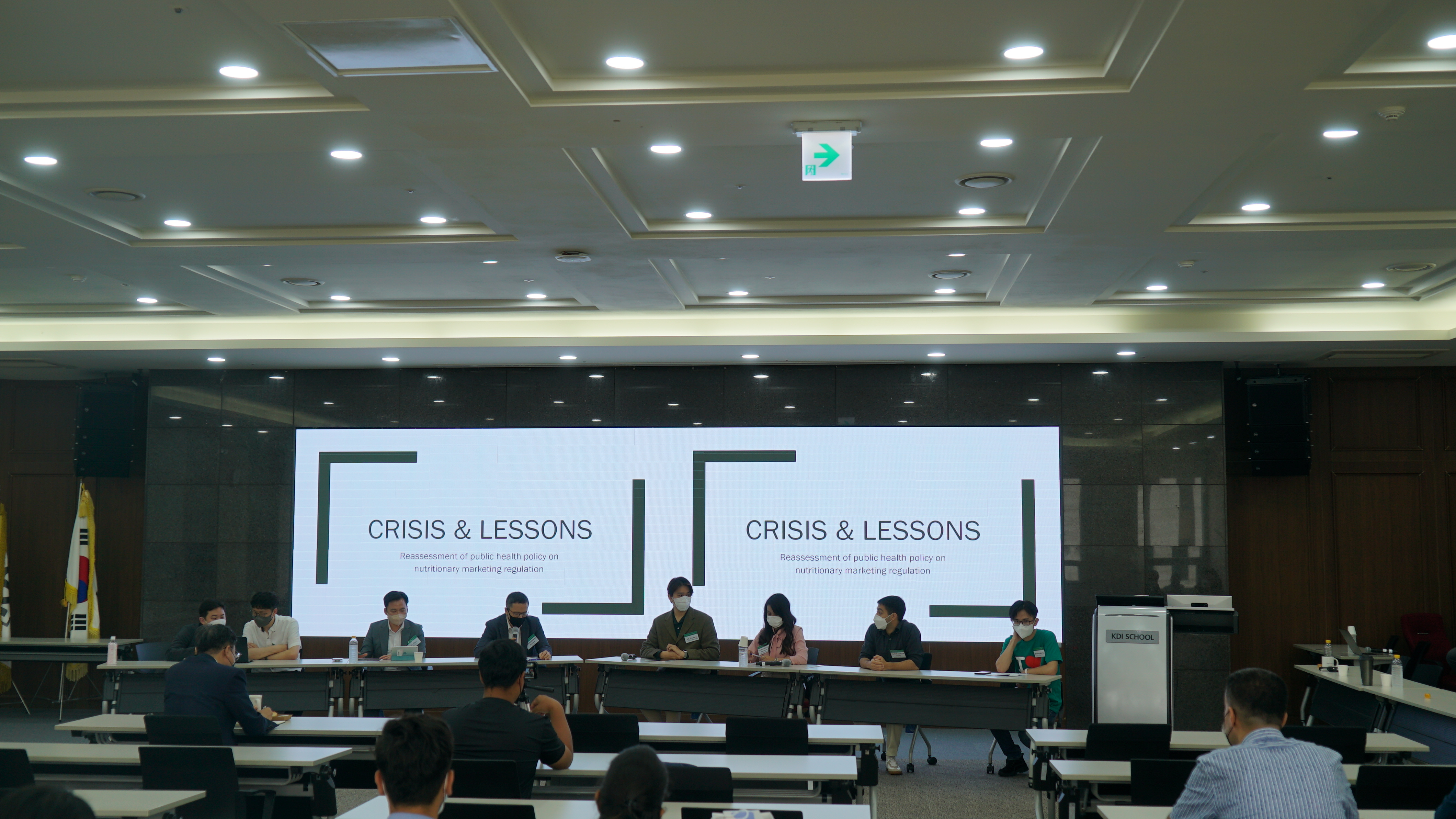
We will start by introducing the four presentations first, and then we will briefly talk about posters.
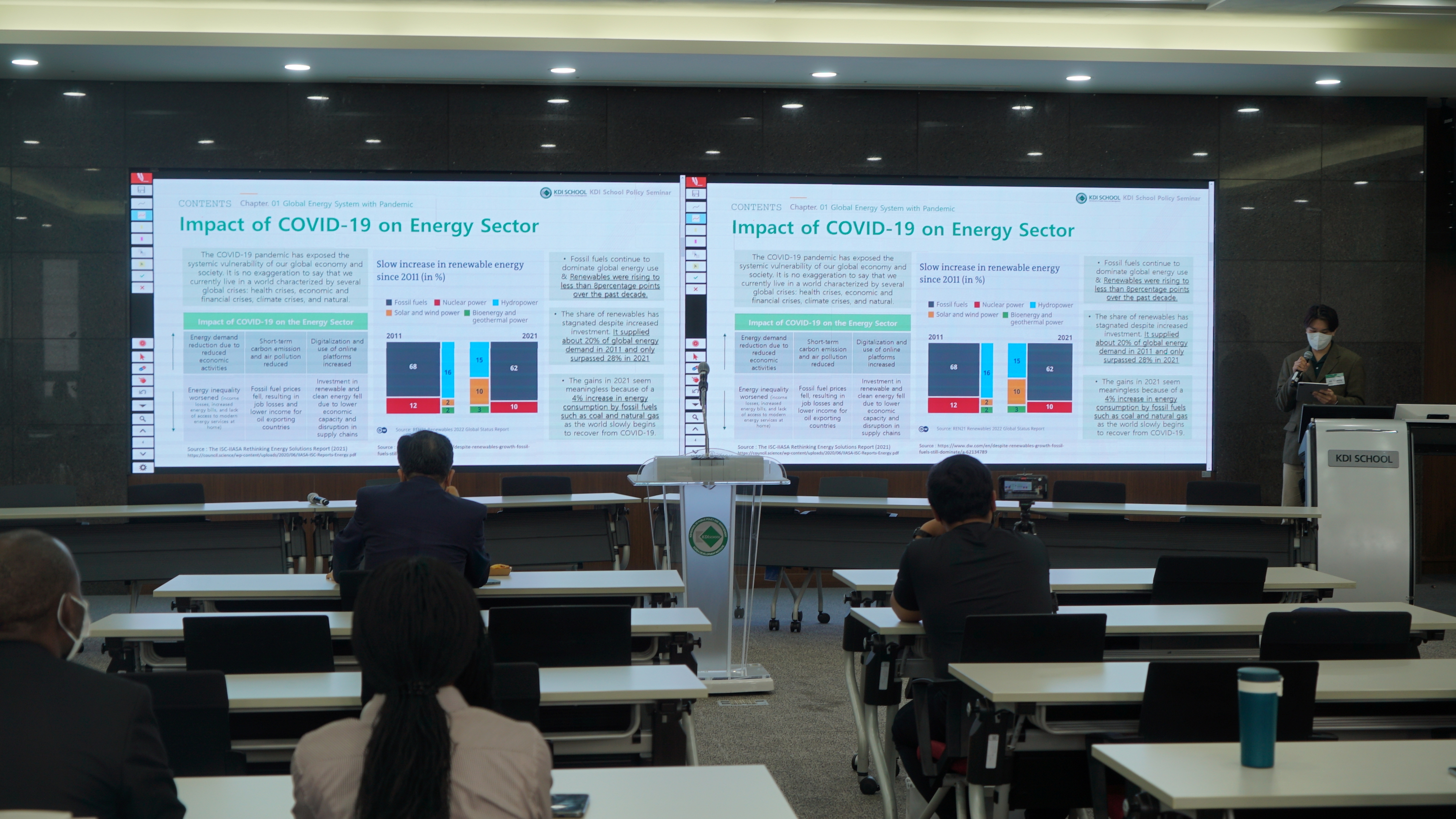
An, Chi-Yeong (2022 MDP) gave a presentation on the dynamics of sustainable energy after the pandemic. COVID-19 first reduced the carbon emissions, but they ramped up again after the recovery period. Fossil fuels continue to dominate global energy use and renewables have increased by less than 8% over the past decade. This is because other components of energy demand, such as transportation and heating, depend much more on fossil fuels. Improving energy efficiency and increasing the use of renewable energy can reduce fossil fuel-based generation and its associated adverse health and environmental consequences. These benefits include savings in energy and fuel costs for consumers, businesses, and the government; new jobs and profits; and tax revenue from companies that support or use energy efficiency and renewable energy.
Ugarte Chacon David (2021 MPP) presented a reassessment of public health policy on nutritionary marketing regulation. Obesity was one of the most important risk factors for mortality from COVID-19. A person is defined as overweight if they have a body mass index of equal or greater than 25. BMI is a person’s weight in kilograms divided by their height in meters squared. Therefore, new policies are needed for correct labeling and full information for food products. The products should clearly mention high calories, high sugar, and high fat if they have such nutritional values.
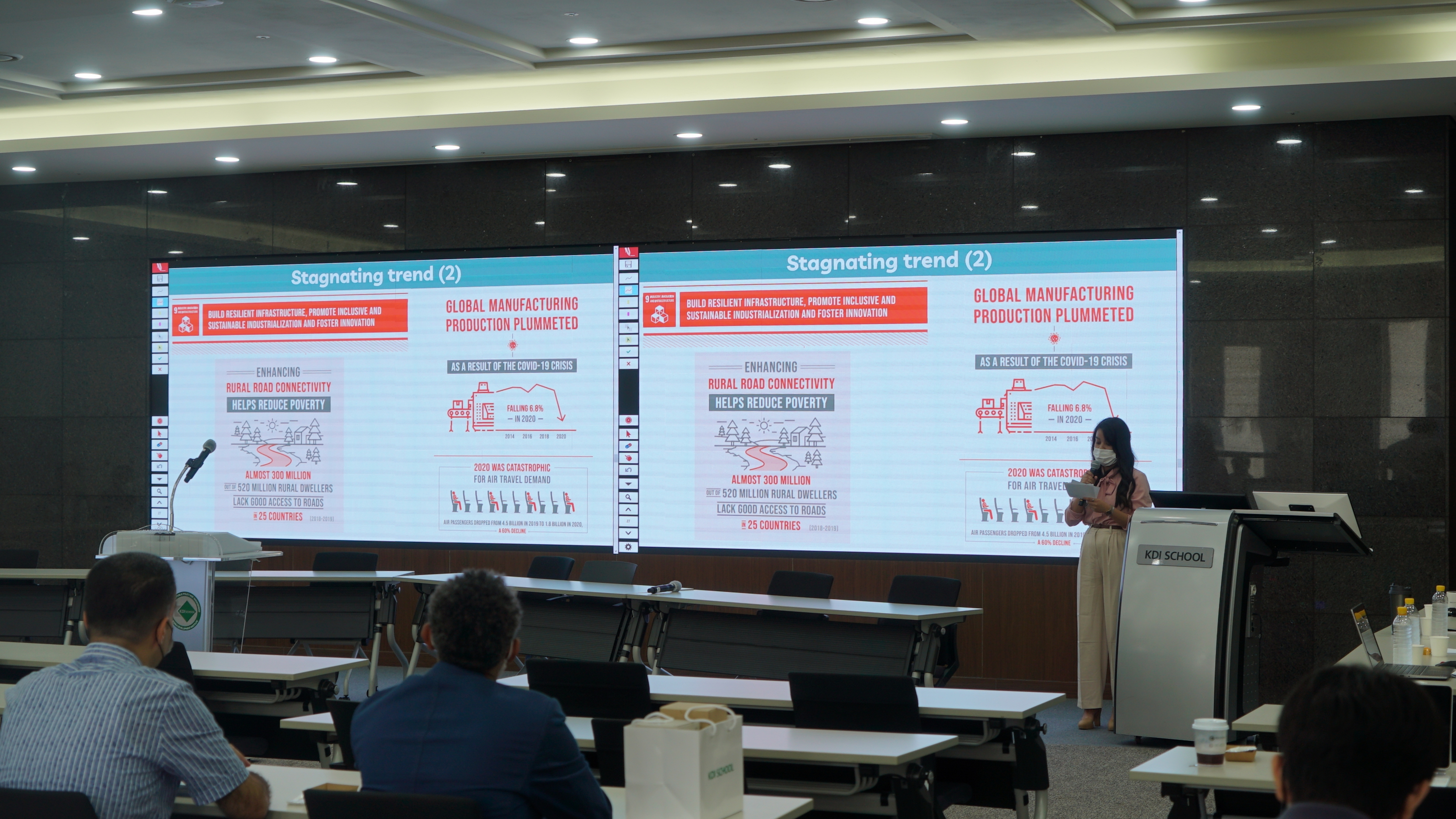
The impact of the COVID-19 pandemic on the achievement of the Sustainable Development Goals was discussed by Andrianony Aina Ianjatina (2020 MPM). The Sustainable Development Goals (SDGs), also known as the Global Goals, were adopted by the United Nations in 2015 as a universal call to action to end poverty, protect the planet, and ensure that by 2030, all people enjoy peace and prosperity. The pandemic has led to the loss of the equivalent of 255 million full-time jobs. The pandemic has worsened the plight of slum dwellers. In 2020, 4186 deaths and disappearances were recorded on migratory routes worldwide. However, there are silver linings too. 125 of 154 developing countries are formulating and implementing national climate adaptation strategies, and progress has been made towards sustainable forest management.
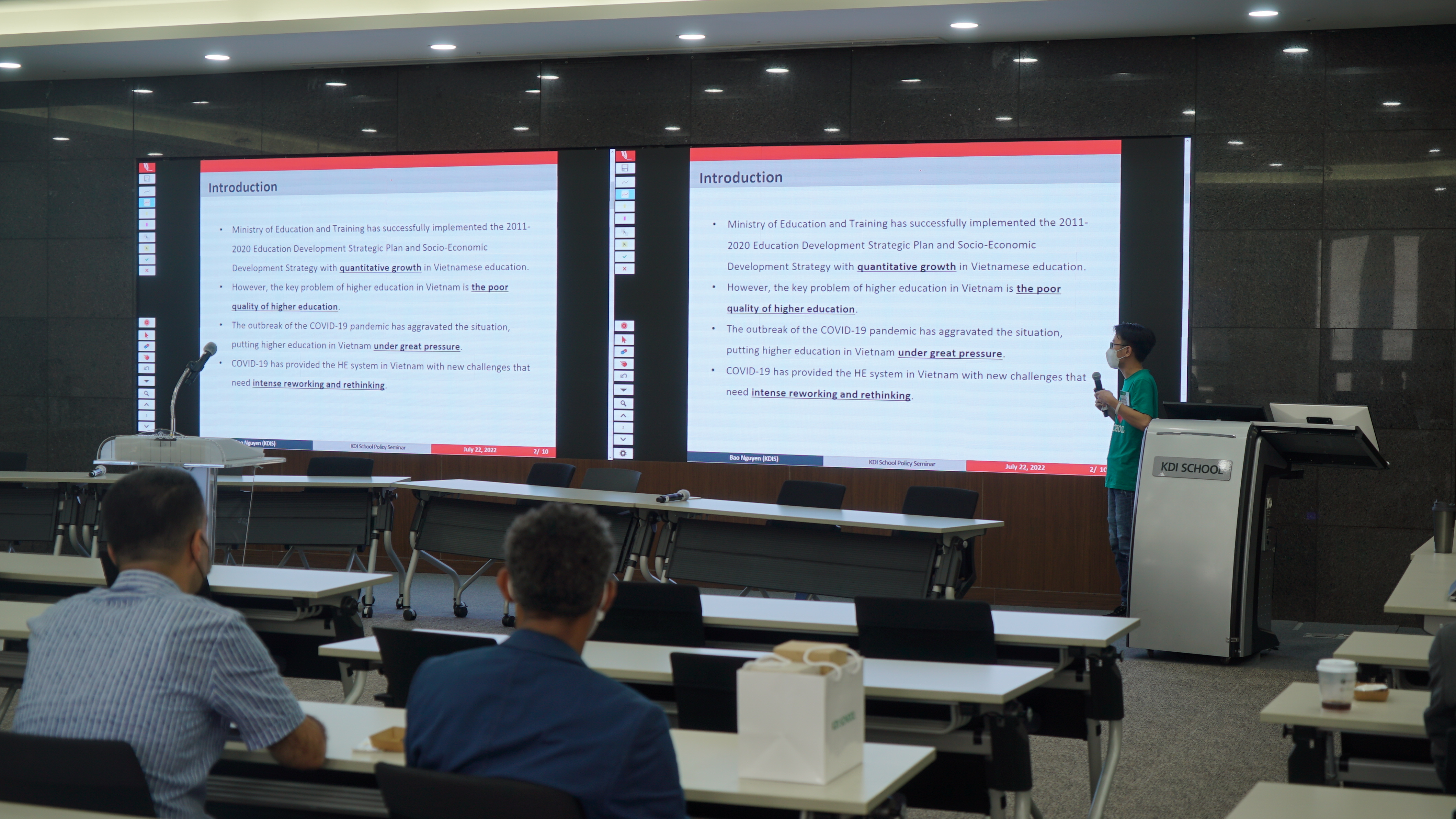
Bao Nguyen (2022 PP) presented on improving the quality of higher education after COVID-19 in Vietnam. The Ministry of Education and Training in Vietnam has successfully implemented the 2011-2020 Education Development Strategic Plan and socioeconomic development strategy with quantitative growth in Vietnamese education. However, the key problem with higher education in Vietnam is the poor quality of higher education. Higher education in Vietnam fails to encourage merit or higher performance due to irreverent funding allocations not linked to the qualitative indices: historically-based, and no existence of student enrollment quotas related to faculty and facilities. The government can implement competitive research grants as a way to encourage competition. The government can enhance autonomy by reducing interference but instead reaffirming the accountability framework to strengthen assessment.
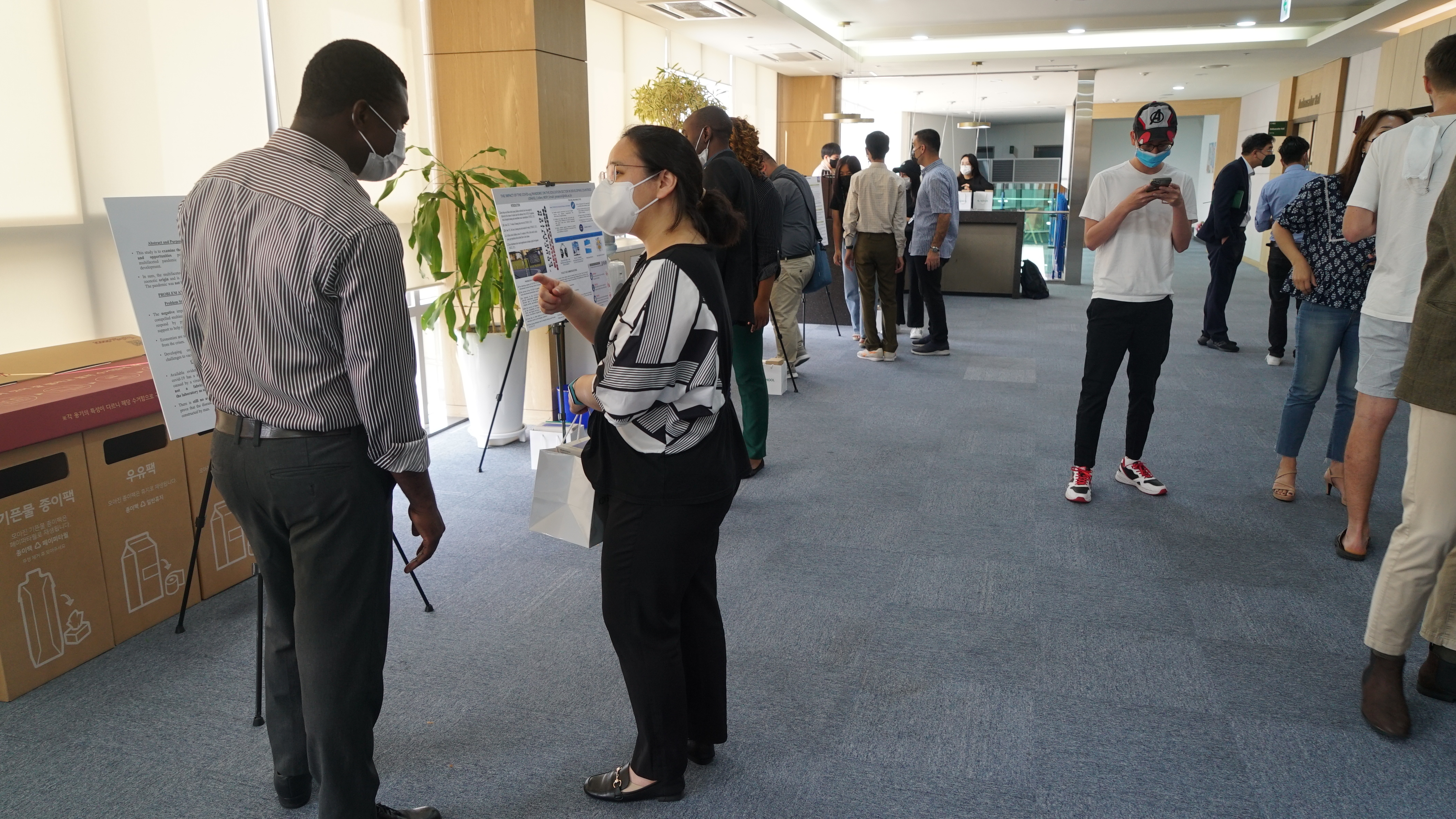
The posters covered a range of different topics, like building urban transportation mobility and the impact of COVID-19 in Uganda, ICT for sustainable development, green finance, education, and the digital divide. The posters were explained by their makers to professors and experts during the policy seminar. The posters made the Lincoln Hall more lively with a variety of ideas.
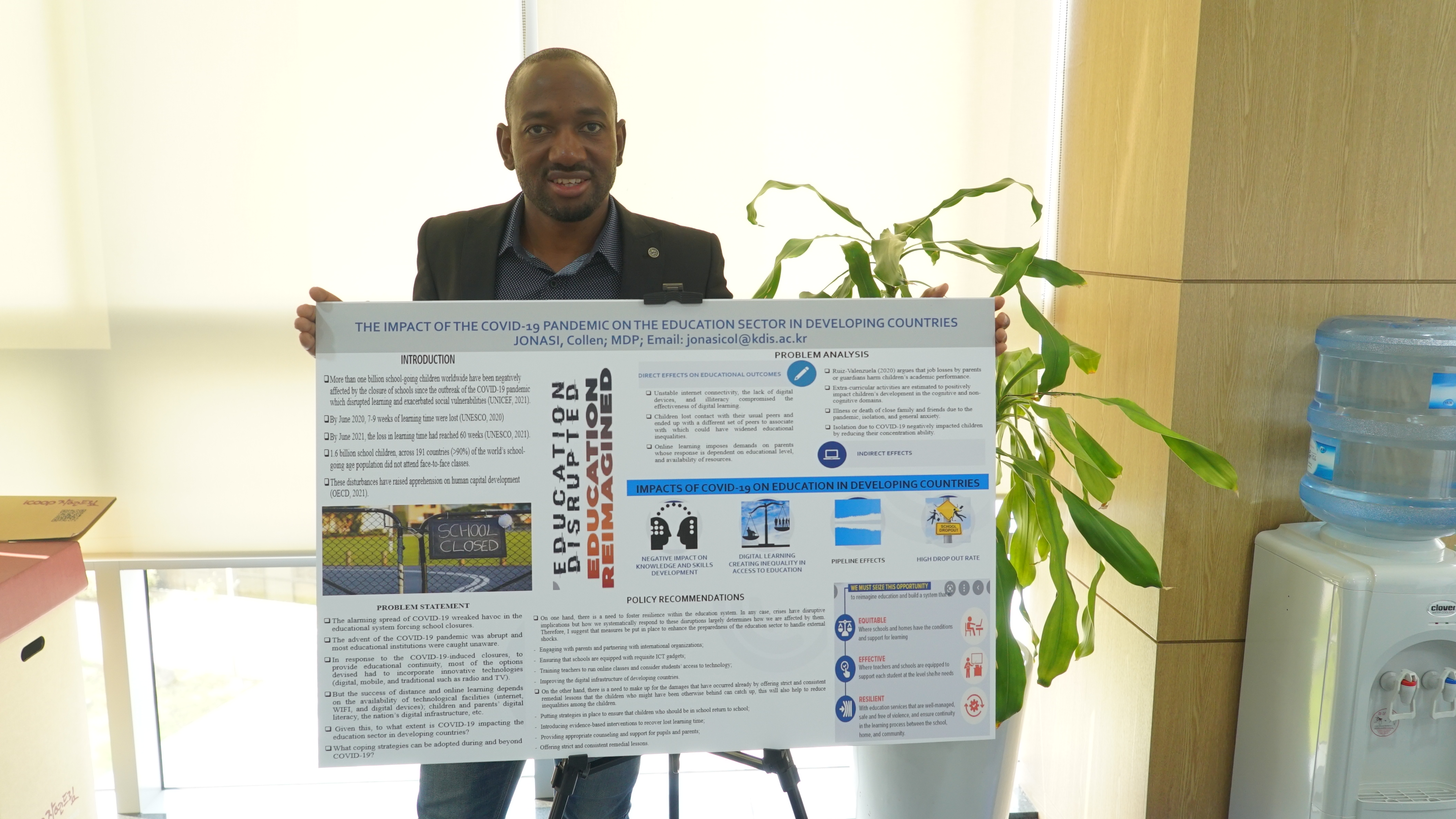
On being asked about the experience of the seminar An, Chi-Yeong said, "The 2022 Summer Policy Seminar in KDI School was my first presenting experience in front of professors and audiences, not as the assignment in the lecture. When I checked the theme (current risk of a pandemic), I thought it was a great chance to research the energy transition with the trend of high demand for a sustainable energy system. During the time preparing the presentation, I felt like I experienced the process of writing and delivering a research paper as a researcher. I was nervous, but after I finished it, I wished there had been even more time to have more discussions with the audience and professors. Even though the seminar was not a huge event, it gave me a worthwhile lesson to make time to think as a future policy researcher and share it with the people. "
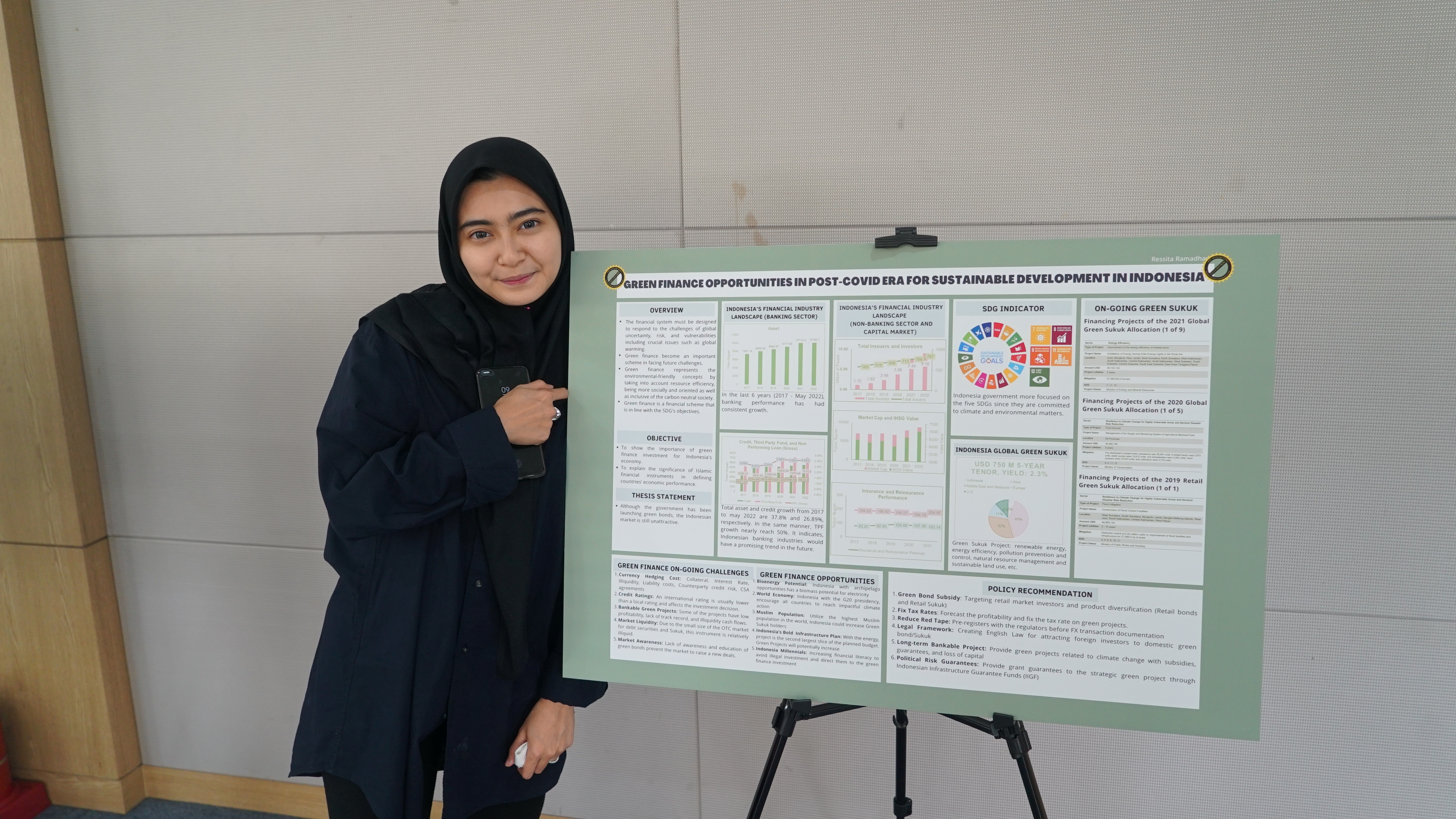
Different programs are run by KDI School to train aspiring, early-career, and seasoned policymakers. A similar endeavor that was effective was the policy seminars webinar. We cordially invite future attendees of workshops like these hosted by KDI School, including both KDI School students and policymakers from other institutions. The KDI School is assisting developing nations in creating creative solutions to local socio-economic problems through the development policy seminars. More information from other seminars will be forthcoming via the KDIS News Center.
